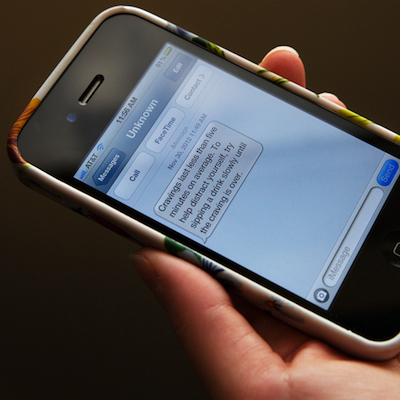
Dr Caroline Free also led the efficacy trial for Txt2Stop, a SMS-based smoking cessation service
Despite all the hype and promise around mobile healthcare technologies, the scientific evidence supporting clinical efficacy of mobile health continues to fall short, according to two new papers in the journal PLOS Medicine.
British researchers examined 20 years' worth of published studies on mobile interventions delivered to healthcare consumers and mHealth technologies intended to improve care delivery processes. In both cases, they were underwhelmed with what they found.
"The results for healthcare provider support interventions on diagnosis and management outcomes are generally consistent with modest benefits," the researchers, led by Dr. Caroline Free, an epidemiologist at the London School of Hygiene & Tropical Medicine, wrote in the latter article. "Trials using mobile technology-based photos reported reductions in correct diagnoses when compared to the gold standard. SMS appointment reminders have modest benefits and may be appropriate for implementation. High quality trials measuring clinical outcomes are needed."
They found just 42 instances of controlled clinical trials related to care delivery where mobile technology was the primary means of intervention. Not one was considered "high quality," meaning there was a low risk of bias and the results were statistically or clinically significant.
"None of the trials reported any objective clinical outcome, and the reported results for healthcare provider support interventions are mixed. There may be modest benefits in outcomes regarding correct clinical diagnosis and management delivered via application software, but there were mixed results for medical process outcomes regarding the time taken and completeness of or errors in reports or warning scores," the report says.
The results were only slightly more positive in the first article. In that case, the British researchers found 75 relevant scientific studies, including 59 trials related to mobile technologies for improving disease management and 26 about changing health behaviors. Just four met the criteria for being of high quality.
They found one high-quality trial that showed improved adherence to antiretroviral therapy – and markedly lower viral load – among HIV-positive patients in Kenya who got text reminders to take their medications. Two trials in the UK with text messaging resulted in more than double the rate of smoking cessation than those in a control group. However, lower-quality trials of SMS for diabetes management found no significant effects on patient weight from the use of mobile technology.
"Multifaceted mobile technology text messaging interventions have been shown to increase adherence to antiretroviral medication in a low-income setting and increase smoking cessation in a high-income setting; these interventions should be considered for inclusion in services in similar settings. Their effects in other settings should be established," the study says.
"For other mobile technology health interventions delivered to health care consumers, the effects of optimized interventions on long term, clinically important outcomes must be robustly established in randomized controlled trials."
















